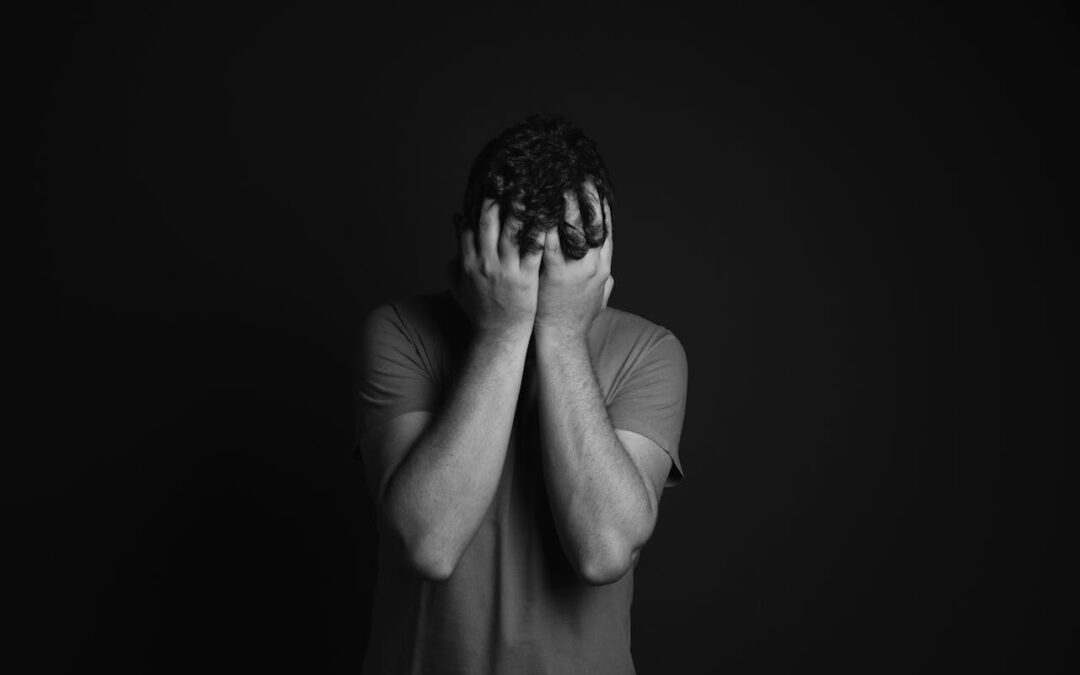Low Testosterone Symptoms? San Diego Has Treatment Options
Testosterone has been synonymous with masculinity, strength, and virility for decades. It’s no wonder, then, that men experiencing a decline in testosterone levels often feel a sense of loss or even emasculation. However, the conversation surrounding low testosterone needs to expand beyond physical changes.
Understanding Testosterone’s Role in Men’s Health
Testosterone is the primary male sex hormone. It is vital in various bodily functions and influences:
- Muscle mass and strength: Testosterone promotes muscle growth and repair, contributing to a leaner physique and stronger bones.
- Sex drive and libido: It directly impacts sexual desire and erectile function.
- Sperm production: Testosterone is essential for healthy sperm production and fertility.
- Red blood cell production: This hormone stimulates red blood cell production, which is essential for carrying oxygen throughout the body.
- Mood and mental health: Testosterone levels contribute to feelings of well-being, energy, and motivation.
The Silent Threat: Symptoms of Low Testosterone
As men age, testosterone production naturally declines. However, certain factors can accelerate this decline, leading to a condition called testosterone deficiency or low testosterone. Here are some common symptoms of low testosterone:
- Physical changes: Reduced muscle mass, increased body fat, erectile dysfunction, and decreased beard growth.
- Fatigue and low energy: Feeling constantly tired or lacking the motivation to engage in activities you once enjoyed.
- Sleep disturbances: Difficulty falling asleep, staying asleep, or experiencing frequent night sweats.
- Decreased libido and sexual performance: Loss of sex drive or difficulty maintaining an erection.
- Mood swings and irritability: Feeling on edge, anxious, or experiencing symptoms of depression.
- Difficulty concentrating and brain fog: Difficulty focusing or experiencing memory lapses.
- Loss of motivation and decreased confidence: Feeling a lack of drive and low self-esteem.
Low Testosterone and the Mental Health Connection
Low testosterone can significantly impact a man’s quality of life. However, the impact goes beyond physical changes. There’s a growing body of research that highlights the strong connection between low testosterone and men’s mental health.
Here’s how low testosterone can affect your mental well-being:
- Increased risk of depression: Studies have shown a link between low testosterone and depression in men. The hormonal changes can contribute to hopelessness, sadness, and a loss of interest in hobbies or activities previously enjoyed.
- Anxiety and irritability: Fluctuations in testosterone levels can lead to increased anxiety and a lower tolerance for stress. Men with low testosterone may experience feelings of agitation and irritability.
- Decreased self-esteem and body image: The physical changes associated with low testosterone, like muscle loss and weight gain, can negatively impact a man’s self-esteem and body image. This, in turn, can contribute to feelings of depression and anxiety.
- Cognitive decline: Research suggests a connection between low testosterone and cognitive decline, potentially impacting memory and concentration.
Breaking the Stigma: Seeking Help for Low Testosterone
It’s important to understand that low testosterone is a treatable condition. Many men tend to hesitate in seeking help due to the stigma surrounding hormonal imbalances and testosterone replacement therapy (TRT). However, addressing low testosterone can significantly improve your physical and mental well-being.
The Path to Optimal Health: Hormonal Therapy Options in San Diego
If you’re experiencing symptoms of low testosterone, consulting a qualified healthcare professional is crucial. San Diego offers a range of treatment options for men with testosterone deficiency.
- Testosterone replacement therapy (TRT): TRT involves replacing low testosterone levels through various methods like gels, patches, injections, or pellets. San Diego hormone specialists can discuss the most suitable delivery method for your needs.
- Lifestyle modifications: Dietary changes that promote healthy testosterone production, regular exercise, and stress management techniques can all contribute to improved hormonal balance.
- Nutritional supplementation: Certain supplements, like vitamin D and zinc, may be recommended to support healthy life.
Hormonal Therapy and Beyond: A Holistic Approach
It’s important to remember that hormonal therapy is not a one-size-fits-all solution. San Diego hormone specialists understand the complexities of low testosterone and will work with you to develop a personalized treatment plan. This plan may incorporate a combination of the following:
- Hormonal therapy: As discussed, TRT is a cornerstone treatment. However, depending on your needs, San Diego hormone specialists may also explore other hormonal approaches.
- Dietary and lifestyle modifications: A well-balanced diet rich in fruits, vegetables, and lean protein can support healthy testosterone production. Regular exercise, particularly strength training, can boost testosterone levels and improve overall health. San Diego hormone specialists can guide the development of a sustainable and effective lifestyle plan.
- Stress management: Chronic stress can exacerbate the effects of low testosterone. Stress management techniques can be incorporated into your treatment plan.
- Sleep hygiene: Prioritizing good sleeping practices, like establishing a bedtime routine and sleep schedule, can significantly improve your well-being and potentially influence testosterone levels.
Empowering Men to Take Charge of Their Health
Low testosterone is a common yet under-recognized condition that can significantly impact men’s physical and mental health. By recognizing the symptoms, understanding the link to mental well-being, and breaking the stigma around seeking help, men can take charge of their health. San Diego offers a wealth of resources and qualified healthcare professionals specializing in treating low testosterone.
Schedule a consultation with a San Diego hormonal therapy specialist today. Together, you can explore personalized treatment options and develop a comprehensive plan to restore hormonal balance, improve mental well-being, and reclaim vitality. Remember, taking charge of your health is a journey, and San Diego hormone specialists are here to support you every step of the way.
What are some symptoms of low testosterone in men?
Low testosterone can cause both physical and emotional symptoms. Some physical changes associated with low testosterone include reduced muscle mass and increased body fat, erectile dysfunction, and decreased beard growth. Men with low testosterone may also experience fatigue and low energy, difficulty sleeping or staying asleep, and a decrease in sex drive and sexual performance.
Low testosterone can also affect a man’s emotional and mental well-being. This can manifest as mood swings, irritability, and difficulty concentrating. Men with low testosterone may also experience feelings of depression, anxiety, and a decreased sense of motivation and self-esteem.
Can low testosterone affect mental health?
Yes, low testosterone can significantly impact mental well-being. Research has shown a strong connection between low testosterone and several mental health conditions in men.
Increased risk of depression: Studies have found a link between low testosterone and depression in men. The hormonal changes associated with low testosterone can contribute to feelings of hopelessness, sadness, and a loss of interest in activities previously enjoyed.
Anxiety and irritability: Fluctuations in testosterone levels can lead to increased anxiety and a lower tolerance for stress. Men with low testosterone may experience feelings of agitation, restlessness, and irritability.
Decreased self-esteem and body image: The physical changes associated with low testosterone can negatively impact a man’s self-esteem and body image. This, in turn, can contribute to feelings of depression and anxiety.
Cognitive decline: Some research suggests a connection between low testosterone and cognitive decline, potentially impacting memory, concentration, and focus.
Is low testosterone a treatable condition?
Absolutely! Consulting a healthcare professional is crucial for diagnosis and treatment. There are various options available, including:
Testosterone replacement therapy (TRT): This involves replacing low testosterone levels through various methods like gels, patches, injections, or pellets. A San Diego hormone specialist can discuss the most suitable option for you, considering your needs, preferences, and lifestyle.
Lifestyle modifications: Lifestyle changes can impact hormonal balance and potentially alleviate symptoms associated with low testosterone. Regular physical activity, particularly strength training, can help boost testosterone levels. Engaging in activities you enjoy can make exercise a sustainable part of your life. Limiting processed foods, unhealthy fats, and excessive sugar intake can also be beneficial. Chronic stress can negatively impact testosterone levels, making it vital to engage in healthy coping mechanisms to help manage stress and improve your well-being.
What is testosterone replacement therapy (TRT)?
Testosterone replacement therapy (TRT) is a medical treatment that aims to raise testosterone levels in men with diagnosed low testosterone (testosterone deficiency). It’s important to note that TRT is not a one-size-fits-all solution. A qualified healthcare professional will determine if TRT is right for you after a thorough evaluation, including blood tests, a physical examination, and a discussion of your medical history and symptoms.
There are various methods of administering TRT, each with advantages and disadvantages. These methods include:
Gels: Applied topically to the skin, gels are a convenient option for some men. However, they can be messy and unsuitable for men with certain skin conditions.
Patches: Worn on the scrotum, patches offer a discreet and controlled way to deliver testosterone. However, skin irritation can occur at the application site.
Injections: Offered in various formulations, injections provide a precise and effective way to administer testosterone. However, injections can be inconvenient and may cause discomfort or pain at the injection site.
Pellets: Inserted under the skin, pellets offer a long-lasting way to deliver testosterone. However, the procedure is invasive and may not be suitable for everyone.
Are there alternatives to TRT for low testosterone?
Yes, alongside TRT, lifestyle changes can significantly improve hormonal balance. This may include a change in diet, engaging in regular exercise, and incorporating stress management practices.
Should I see a doctor if I suspect low testosterone?
If you’re experiencing symptoms like fatigue, mood swings, decreased libido, or difficulty concentrating, consulting a healthcare professional is recommended. They can diagnose low testosterone and develop a personalized treatment plan.
Can I do anything else to improve my testosterone levels naturally?
While TRT and lifestyle modifications are primary approaches, some studies suggest certain supplements like vitamin D and zinc may be beneficial.
What are the benefits of treating low testosterone?
Addressing low testosterone can significantly improve your quality of life: increased energy levels, improved mood, better sleep, enhanced libido and sexual function, and potentially improved cognitive function.
I’m worried about the stigma around testosterone replacement therapy. Should I still seek help?
Absolutely. Low testosterone is a common medical condition, and treatment can significantly improve your physical and mental well-being. Don’t hesitate to prioritize your health and talk to a doctor. Remember, specialists are there to help you navigate this journey.

